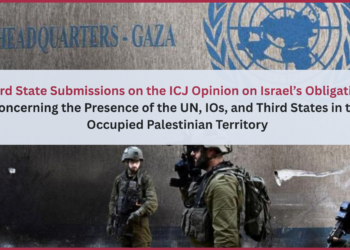Law for Palestine Law for Palestine has successfully wrapped up an intensive training course aimed at enhancing participants’ proficiency in legal research methodologies and the process of writing and publishing legal papers in esteemed international academic journals. This transformative initiative engaged 24 trainees, including master’s and doctoral researchers from various regions, encompassing the Arab world, Europe, and Canada.
The participants were trained by a group of legal experts and experienced practitioners, such as Dr. Mutaz Qafisheh, a renowned professor of international law. Dr. Qafisheh’s extensive body of work has earned him recognition as the most cited law professor in Palestinian universities across databases like Scopus, Hein Online, and Google Scholar. Qafisheh has authored six books and nearly 50 refereed research published in international journals.
The training also featured the expertise of Dr. Malaka Shwaikh, an associate professor specializing in peace and conflict at the University of St Andrews, along with Moien Odeh, a doctoral researcher in peace and conflict resolution at George Mason University, and Hassan bin Imran, a Law for Palestine board member and director of its legal clinic.
Hiba Birat, Executive Director of Law for Palestine, emphasized that this training initiative aimed to address the critical dearth of legal research publications in international journals within the Arab region. Birat highlighted a UNESCO study revealing that the Arab world has merely 136 researchers per million people, in contrast to 1395 in Israel, 2439 in the European Union, and 4374 in America.
Birat outlined that the program stands as a pioneering venture, uniquely combining theoretical knowledge and practical skills to empower participants with advanced legal research methods and techniques. Encompassing essential aspects such as how to form the right questions and understand the elements of academic research, how to access references and documents through specialized tools, and the challenges of publishing in reputable academic journals, the program empowers researchers to make impactful contributions.
The program stands as a pioneering venture, uniquely combining theoretical knowledge and practical skills to empower participants with advanced legal research methods and techniques
Birat said that the participants in the program will receive dedicated support and guidance from Law for Palestine over a two-month period, fostering the development and refinement of their research projects for eventual publication in internationally influential academic journals.
Mona Abu Omara, a diplomat and master’s degree researcher in international relations from Canada, lauded the program’s inclusive nature, which transcended geographical, temporal, and linguistic barriers. Abu Omara praised the program’s ability to deliver vital insights smoothly and comprehensibly, enriching the knowledge of researchers and activists alike.
Feedback from participants in a post-program questionnaire underscored the course’s efficacy. An overwhelming 80% of respondents expressed increased confidence in their ability to produce research suitable for esteemed scientific journals, while 75% rated the program as excellent or very good, highlighting its superiority over previous offerings in the field.





